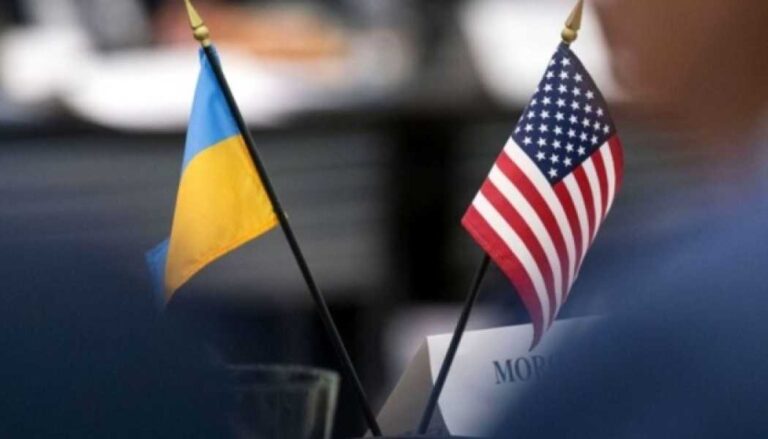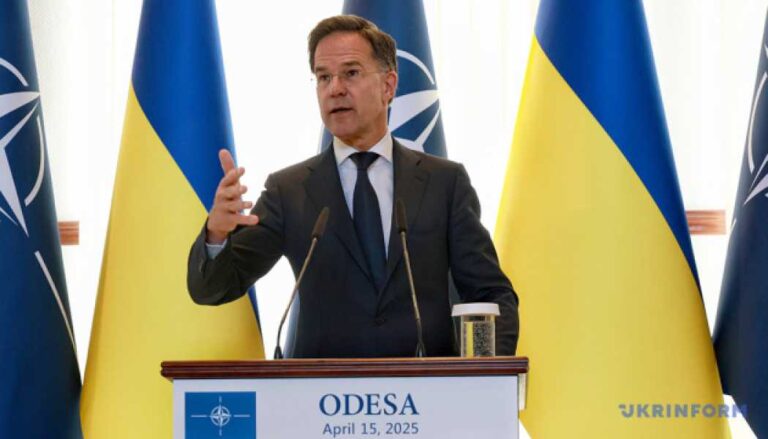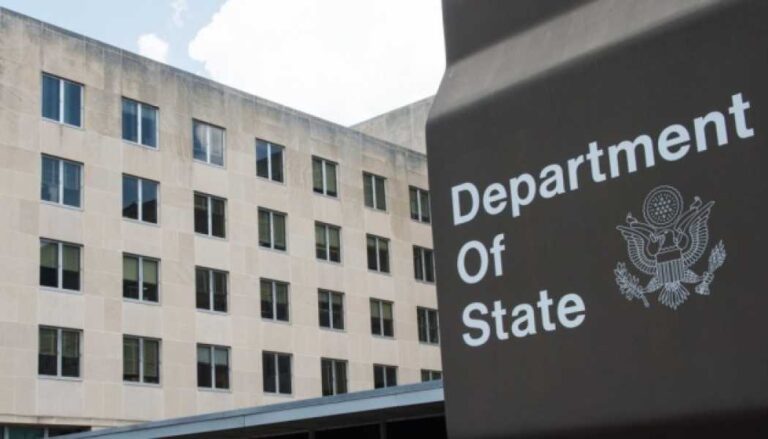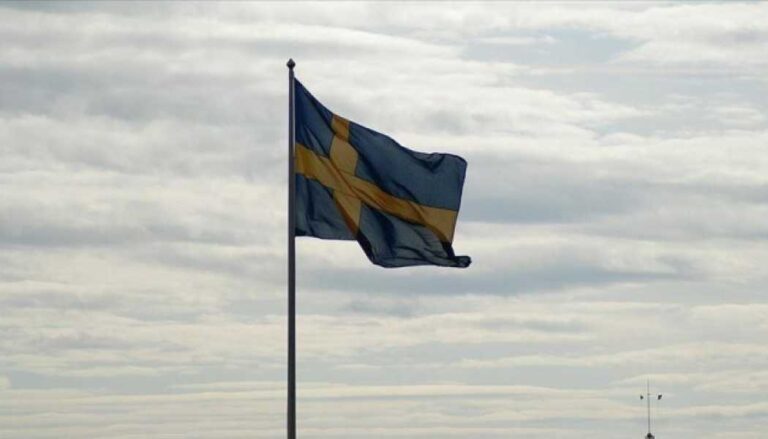Ramstein-27: Record Commitments and Electronic Warfare Coalition for Ukraine
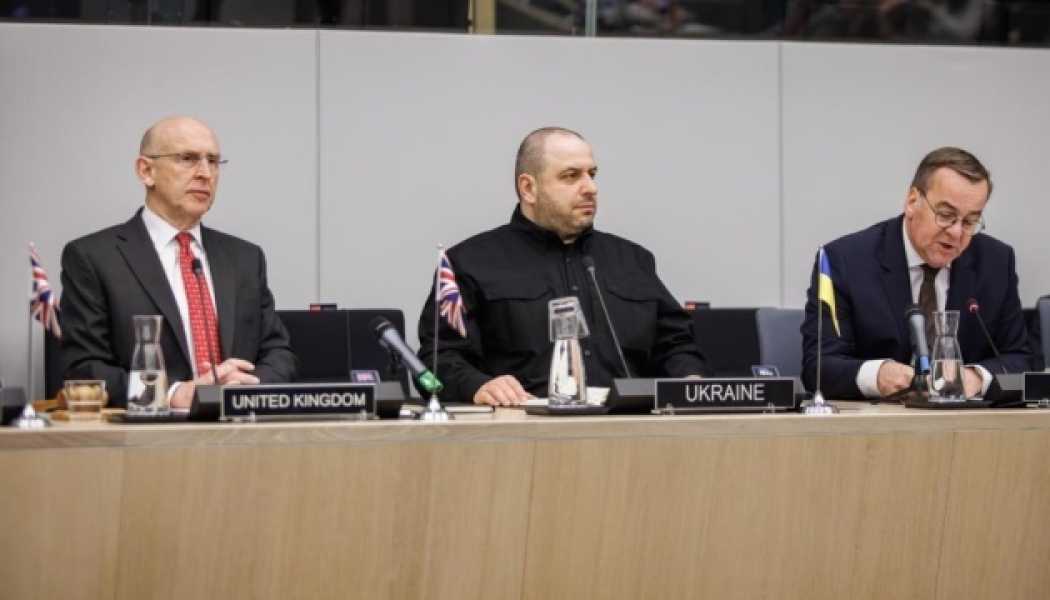
Defense officials from more than 50 countries that make up the Contact Group on Ukraine’s Defense, also known as the Ramstein Group, gathered at NATO headquarters in Brussels for their 27th meeting on April 11 to discuss further assistance and support for Ukraine. The event was co-chaired by the United Kingdom and Germany, underscoring growing concerns about Ukraine’s security. The meeting was addressed by a Ukrainian delegation led by Defense Minister Rustem Umerov. President Volodymyr Zelenskyy and U.S. Defense Secretary Pete Hegseth took part via videoconference, while the presence of NATO’s Secretary General and an EU diplomat in person added significance to the gathering.
KEY MESSAGES: UNITY OF EFFORTS AND EUROPEAN LEADERSHIP
UK Defence Secretary John Healey has said 2025 is a “critical year” for Ukraine in its fight against Russian invasion: “2025 is going to be a make-or-break year for the war in Ukraine, it's a pivotal moment. It's time for our defence industries to step up, and they are; it's time for our militaries to step up, and they are; it's time for our governments to step up, and they are.”
In closing the meeting, Healy noted that “today in this Contact Group we are stepping up our support for Ukraine in the fight: “Our job as defense ministers is to provide urgent military assistance to Ukraine's fighters. All the military assistance we provide now will help Ukraine in its current fight and will help ensure a lasting peace tomorrow, as the Ukrainian armed forces must become their own strongest deterrent against further Russian attacks.”
Ukrainian Defense Minister Rustem Umerov expressed cautious optimism about future support, noting that 2025 could be a record year for aid. He emphasized the importance of a comprehensive approach: “Bilateral negotiations have been held for each country, and we have received support in the area of our defense industrial sector, industrial partnerships, transfer of intellectual property rights, and joint investments. The priorities remain unchanged: air defense, missiles, artillery, ammunition, and armored vehicles.”
Umerov also noted that an important achievement was the progress in the launch of production of air defense systems on the territory of Ukraine, although the details remain confidential for security reasons.
While acknowledging the continued role of the United States as a “key partner for both Ukraine and the entire ERA,” the Ukrainian minister noted a shift in Washington’s focus: “With the arrival of the new administration, the United States has made it clear to us that in addition to ERA and Ukraine, their attention will also be directed to the Asia-Pacific region.” This strategic shift objectively places greater responsibility on European allies, which was reflected in the statements of Mr. Healey and Mr. Pistorius at the meeting.”
UK Defence Secretary John Healey confirmed the scale of the resources mobilised, announcing new pledges of €21bn – “a record increase in funding for Ukraine”. He highlighted his country’s unprecedented £4.5bn contribution for the current year and pointed to fundamental changes in battlefield tactics, where the dominance of drones is becoming a key factor. “We estimate that 60 to 70 per cent of battlefield casualties are caused by drones,” Healey said, stressing the need to adapt to the new conditions. The British minister also sharply criticised Russia for its approach to peace talks, citing the Kremlin’s rejection of President Trump’s initiative: “Putin has said he wants peace, but he has rejected a full ceasefire… he continues to drag out negotiations… his troops continue to bomb Ukraine.” In this context, Healey supported the concept of achieving “peace through strength”, emphasising the need to put Ukraine in the best possible conditions for negotiations.
His German counterpart Boris Pistorius also stressed the special responsibility that the current situation places on Europeans. He said that “our goal is and must remain the restoration of peace, freedom and security on the European continent.” In his opinion, achieving this goal is impossible without a strong Ukraine capable of defending itself. “It is absolutely clear to me that we still need a strong military Ukraine, and it needs our support. Only then can we pave the way for a peaceful settlement,” Pistorius said, promising that Berlin's position will remain unchanged. This position is clearly consistent with the statements of other participants, in particular Dutch Defense Minister Ruben Brekelmans, who said: “If we want Ukraine to have better conditions in the negotiations, it is essential to support it on the battlefield.”
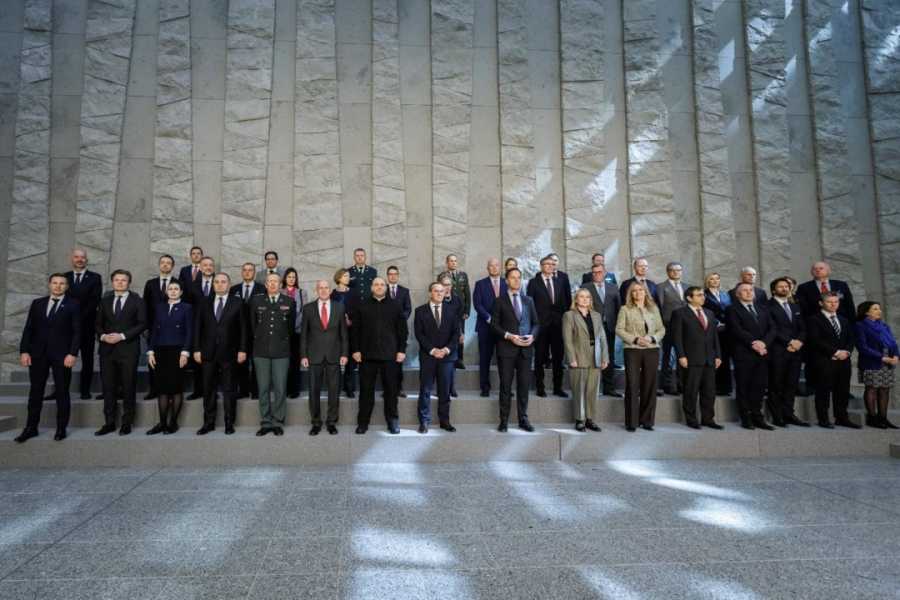
Photo: Defense officials from more than 50 member countries of the Contact Group on Ukraine's Defense met in Brussels for the 27th meeting to discuss assistance to Ukraine
EU High Representative Kaja Kallas said that EU member states have allocated over 23 billion euros for military
Source: ukrinform.net
